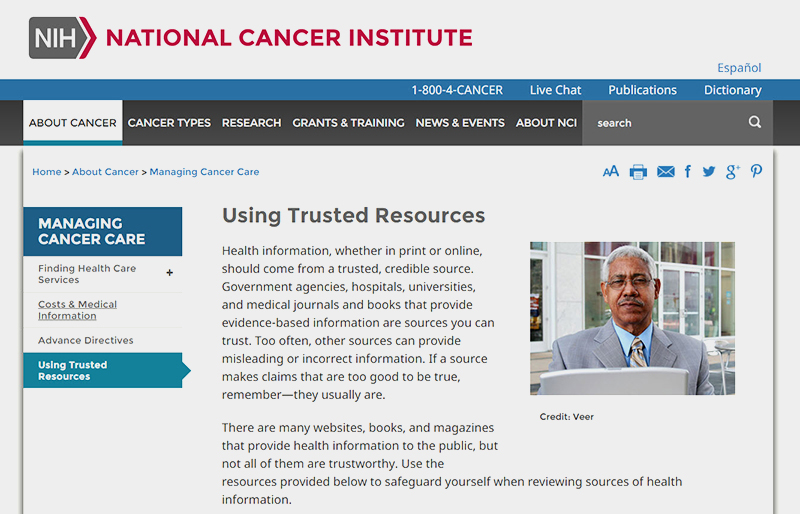Health Capsule
Health Information You Can Trust

When you’re searching online for answers to your health questions, you may feel overwhelmed by the number of websites you come across. How do you know which ones to trust? Which websites have reliable and up-to-date information?
First, consider the source. Government websites end in “.gov” and university or other educational institution websites end with “.edu.” These are online sources that you can usually trust. If you see “.org” or “.com” at the end of a web address, it may also be a trusted site. However, check it closely to make sure. The information may not be evidence-based. Or, the site may be trying to sell you a drug or service.
Also, find out who is reviewing the health information before it’s published. A trusted, credible source will often describe how they review information. For example, NIH’s National Cancer Institute (NCI) website says, “Medical experts, cancer researchers, and editors review the content before it is published to the website.”
Third, look for the date. Online health information sources should show when the information was posted, reviewed, or last updated.
NCI’s recently updated Using Trusted Resources webpage has tips to help you find reliable resources. To read more about trusted resources, visit www.cancer.gov/using-trusted-resources.
NIH Office of Communications and Public Liaison
Health and Science Publications Branch
Building 31, Room 5B52
Bethesda, MD 20892-2094
Contact Us:
nihnewsinhealth@od.nih.gov
Phone: 301-451-8224
Share Our Materials: Reprint our articles and illustrations in your own publication. Our material is not copyrighted. Please acknowledge NIH News in Health as the source and send us a copy.
For more consumer health news and information, visit health.nih.gov.
For wellness toolkits, visit www.nih.gov/wellnesstoolkits.




